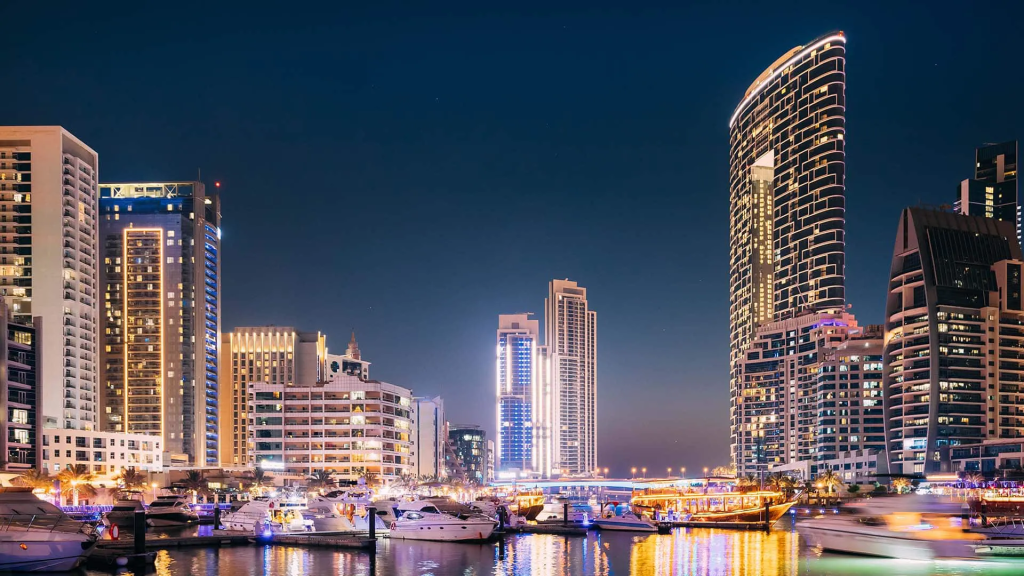
In many cities, renting a home means juggling multiple visits to municipal offices, utility providers, and registration departments — often over days or weeks. Sharjah, one of the UAE’s fastest‑growing emirates, has changed that. Today, much of the rental process in Sharjah can be completed online in minutes. How did this transformation happen? What enablers and challenges were involved? And what lessons can other cities learn? Below is a detailed look.
The Old Reality: Fragmented, Time‑Consuming, and Burdensome
Before these reforms, the rental process in Sharjah (like in many places) involved multiple steps and multiple physical interactions. A prospective tenant or landlord would typically have to:
- Draft or negotiate a lease contract (often with the help of a real estate agent).
- Visit the municipality or real estate registration department to register / attest / certify the lease.
- Go to the electricity, water, gas authority to open a utilities account and request activation.
- Pay various fees, deposits, and municipal charges.
- Return to multiple offices to submit proof of payment, signatures, identity documents, etc.
- Wait for approvals, stamps, or validation from various government bodies.
Each of these steps could entail waiting in queues, submitting physical papers, transferring between offices, and possibly returning for corrections or missing documents. The process could stretch over days, sometimes even weeks. The friction discouraged investment, slowed real estate transactions, and frustrated tenants and landlords alike.
The Vision: Seamlessness, Integration, and User-Centric Design

Leaders in Sharjah recognized that this experience was inconsistent with the emirate’s broader ambitions of smart governance, ease of business, and citizen satisfaction. The goal was to reimagine the rental process entirely: to reduce redundancy, remove friction, and integrate stakeholders.
Key guiding principles included:
- Digital-first mindset: Wherever possible, shift interactions to online platforms.
- Inter-agency integration: Connect systems across municipalities, utilities, real estate registries, and planning departments.
- Data reuse: Avoid asking users to resubmit information that government agencies already hold.
- Single unified gateway: Provide a central interface or platform where a tenant or landlord can complete all rental-related tasks.
- Transparency, traceability, and automation: Make the process visible (so users can track their status) and automate decision points (where rules permit).
- Security, identity, and authentication: Use trusted digital identity (e.g. UAE Pass) to ensure that parties are verified and contracts are legally binding.
This vision guided the reforms and design of the new systems.
The Engine: Aqari — Sharjah’s Real Estate Digital Platform
At the heart of the transformation is Aqari, a unified digital platform introduced to streamline real estate services in Sharjah. This platform is designed to be the one-stop center for leasing, property registration, utilities integration, contract attestation, and related tasks.
Some of Aqari’s key features include:
- Dashboard view: Users can see “My Properties,” “My Contracts,” transaction history, and real estate analytics in one place.
- Interconnection of over 20 entities: Aqari links with local municipalities, federal bodies, utility providers, planning and survey departments, etc.
- Single sign-on via UAE Pass: So users authenticate just once to access their real estate tasks.
- Real-time push notifications and updates: Users are informed about the progress of approvals or actions required from them.
- Service orchestration: Behind the scenes, Aqari automates routing, verification, approvals, and forwarding of contracts between relevant government bodies.
Because of Aqari, many formerly manual handovers now happen digitally and instantly.
The Key Enablers of Speed

What made the “minutes not visits” transformation possible? Several synergistic enablers:
- Systems integration and data sharing
Government agencies—municipality, real estate registration, water & electricity (SEWA), town planning—linked their databases and services. This allowed verification or validation steps to happen automatically. For example, when a lease is submitted, the system can check property ownership records or zoning data without needing manual input. - Automated contract attestation
The attestation of a lease contract, which previously required a trip to municipal offices, is now automated. Once the system verifies the submitted contract using existing municipal records, it forwards paperwork electronically and notifies stakeholders. - Utility account integration
The lease attestation triggers an automatic handoff to SEWA (Sharjah Electricity, Water and Gas). The tenant receives via SMS the required deposit amount, pays online, and upon confirmation, the utility connection is activated. This removes the need for separate visits to utilities offices. - Unified payment mechanisms
The system supports consolidated payments — municipal fees, utility deposits, attestation charges — in one go through a unified payment gateway. - Strong digital identity framework
Use of UAE Pass ensures that landlords, tenants, and agents are authenticated securely. This enables legally binding digital signatures and reduces fraud risk. - Change management and capacity building
To support the shift, Sharjah conducted training workshops, registered stakeholders (developers, real estate firms, agents) on the new platform, and gradually scaled operations. - Piloting and staged rollout
The new systems were tested in pilot phases (with select companies, properties) before full deployment. This allowed refinements and problem‑solving before large-scale rollout.
The Results: Time, Cost, and Efficiency Gains
The impact has been tangible, both for residents and government:
- Between 2022 and 2024, the unified digital system resulted in Dh 250 million in cost savings and eliminated over 1.2 million work hours across government entities.
- Residents directly benefited: saved over Dh 1 million in collective costs and more than 79,000 person-hours of waiting and travel.
- The rental process — from contract submission to utility activation — now can be completed in minutes via digital workflows instead of requiring multiple in-person visits.
- In the pilot phase, 2,000+ transactions were fully processed online, 42,000 real estate units and 1,300 buildings registered without users having to visit any government offices.
- The number of procedural steps was cut: what earlier required up to seven steps is now often done in three.
These achievements not only improved user convenience, but also boosted trust in the system and increased the efficiency of government operations.
Challenges, Risks & Lessons Learned

While Sharjah’s progress is impressive, the transition was not without challenges. Some lessons and caveats:
- Data integrity and interoperability
Integrating many government databases demands high data quality, mapping, and translation across legacy systems. Differences in data formats or missing records can cause validation failures. - User resistance and training
Some stakeholders—real estate agents, landlords, municipal staff—may resist digital shifts, preferring traditional workflows. Intensive training, incentives, and support are needed to drive adoption. - Edge cases and exceptions
Not all rental agreements are straightforward. There may be special conditions, unique property types, heritage buildings, or legal disputes that require manual intervention. Ensuring fallback procedures is critical. - Digital divide and accessibility
Some users may lack the digital literacy or access to devices/internet. Ensuring alternate support channels (call centers, kiosks) is important. - Security, fraud, and identity verification
Strong authentication, audit trails, anomaly detection and fraud controls are crucial to prevent misuse or forged contracts. - Maintaining trust and transparency
Users must trust that the digital output (contract seals, validation) is legally binding. Transparent logs, status tracking, and notification systems help. - Continuous improvement and agility
Even after deployment, monitoring system performance, gathering user feedback, and iterating improvements are essential.
What Other Cities Can Learn
Sharjah’s experience offers a blueprint. Cities worldwide can draw lessons:
- Start with integration, not silos
The biggest gains come from connecting separate government systems so that data flows, rather than building another isolated portal. - User-first design
Map the end-to-end user journey, identify friction points, and redesign the workflow to minimize steps, handoffs, and redundant inputs. - Automate decision points
Wherever rules are clear and unambiguous, use automation to remove the need for human approval or review. - Strong digital identity and trust framework
Ensure authentication and digital signatures are legally robust so users accept digital contracts. - Phased rollouts with pilots
Test with a limited set of users or transactions, refine, then scale. - Institutional & cultural shift support
Invest in training, incentives, and leadership buy-in to overcome resistance. - Fallback paths & support channels
Always maintain alternative channels for users who cannot go fully digital. - Ongoing monitoring and feedback loops
Use analytics, logs, and user surveys to continuously improve the system.
Conclusion
Sharjah’s transformation from a cumbersome, multi‑office rental process to a streamlined, minutes-based experience exemplifies what thoughtful digital governance can achieve. With strong integration, user-centric design, automation, and institutional support, Sharjah turned what was once a headache into a sleek process.




Leave a Reply